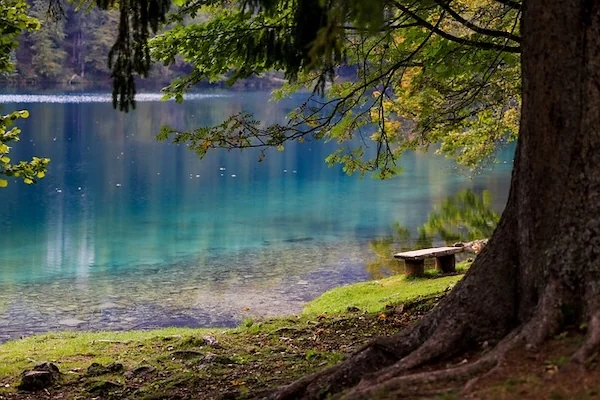 As soon as the election was over, the emails flooded in, social media exploded, and my iPhone lit up with texts like fireflies at night. In all of this, there was one common thread—the word should. Whether stated directly or implied, it dominated every message. No matter where people stood on the election results—angry, elated, scared, or pleased—trouble spread like wildfire: family members stopped speaking, friends accused each other, and rumors circulated. Suggestions poured in: don’t watch the news, watch all the news, be social, be alone, be kind, be mad, plant a garden, find nature, watch old movies in bed, resist the new order, share the outrage, learn French, take a cooking class, pray, sing, or love others.
As soon as the election was over, the emails flooded in, social media exploded, and my iPhone lit up with texts like fireflies at night. In all of this, there was one common thread—the word should. Whether stated directly or implied, it dominated every message. No matter where people stood on the election results—angry, elated, scared, or pleased—trouble spread like wildfire: family members stopped speaking, friends accused each other, and rumors circulated. Suggestions poured in: don’t watch the news, watch all the news, be social, be alone, be kind, be mad, plant a garden, find nature, watch old movies in bed, resist the new order, share the outrage, learn French, take a cooking class, pray, sing, or love others.
I felt rebellious and even a little angry at being told how to feel or cope with the political, social, and economic mess. I was tired of “the solutions” being preached at me. It felt like a national—no, global—craziness was taking place just as the last traces of fall’s beauty faded and the winter cold set in. For those of us who find solace in flowers and gardens, the short, dark days brought sadness, fatigue, and disinterest. On a personal level, life was difficult. We had moved to a new community for the first time in 44 years, downsizing by two-thirds—a monumental effort of organizing, leaving, and letting go. People close to me faced medical crises, and a dear friend gave up a long, brave fight with cancer. Even our beloved doodle, Cali, was showing signs of aging, with a second bald spot appearing on her coat. In one way or another, my clients were affected by the political madness, both before and after the election. And although I was privileged to enjoy great health and family and friends I adore, it didn’t ease the blues, the blahs, or the underlying fear.
I’ve felt disoriented for months, in my life and the world. We lived out of boxes and bags for weeks in hotels, Airbnb, and with friends, in chaos and spending a lot to pay for it all. The l house buyer pulled out two days before the closing—a hard moment.
I turned to my usual tools—books, prayers, podcasts, connections, and walks—trying to give myself space to navigate the turmoil, but I felt as if I were in a horrific Orwellian dream. Outwardly, I functioned, but inwardly, I’d lost my center.
Then it happened—a strange and profound moment. On a wet and dismal day, I parked across from a coffee shop and began walking toward it when a large shivering rat emerged from the bushes. Drenched, it marched right up and stood before me, slowly reaching out a tiny paw as if beckoning me. Our eyes met—two creatures in distress, cold and wet.
The rat cried out for help. I took off my wet scarf and picked the creature up and carried it to a sheltered spot in a grove of trees next to the shop. I said something comforting to it.
After leaving the shop with my latte, I crumbled up a small piece of a cheese sandwich I had in my bag for it. The rat met my gaze again with bright, even intelligent, eyes. (I read somewhere that they have an IQ of 105.) I saw its suffering, along with its intelligence and desire to survive, and I felt a meaningful connection between us. The rat scurried off into the bushes. I remembered Dachner Keltner’s book Awe and the quote, “Awe is the feeling of being in the presence of something vast, that transcends your current understanding of the world.” Not one of the suggestions for how to cope with a crazy world involved making friends with a wet rat—but I did. I returned to my car and started to cry.
I sat there for a long time, weeping—an exhaustive weeping (if such a term exists) that brought deep relief. I left the parking lot feeling cleansed, as if the act of crying had brought me back to life.
It wasn’t the directives or commentaries posted on social media that helped me find my center in a world gone mad—it was a strange encounter with a fellow struggling creature. I know of many interspecies interactions that have influenced humans lucky enough to form such connections, including encounters with polar bears, dolphins, and even geese—many of us followed the story of Grizzly 399 until her tragic end. These bonds give us the sense of stepping out of our world into a mystery that transcends our understanding. Connection is a reminder that we are all a part of something greater than ourselves, and this gives me a sense of awe.
I wish you all perseverance and wisdom in finding your own center. Often, it’s the awe of being connected to something beyond ourselves that leads us back to who we are.
